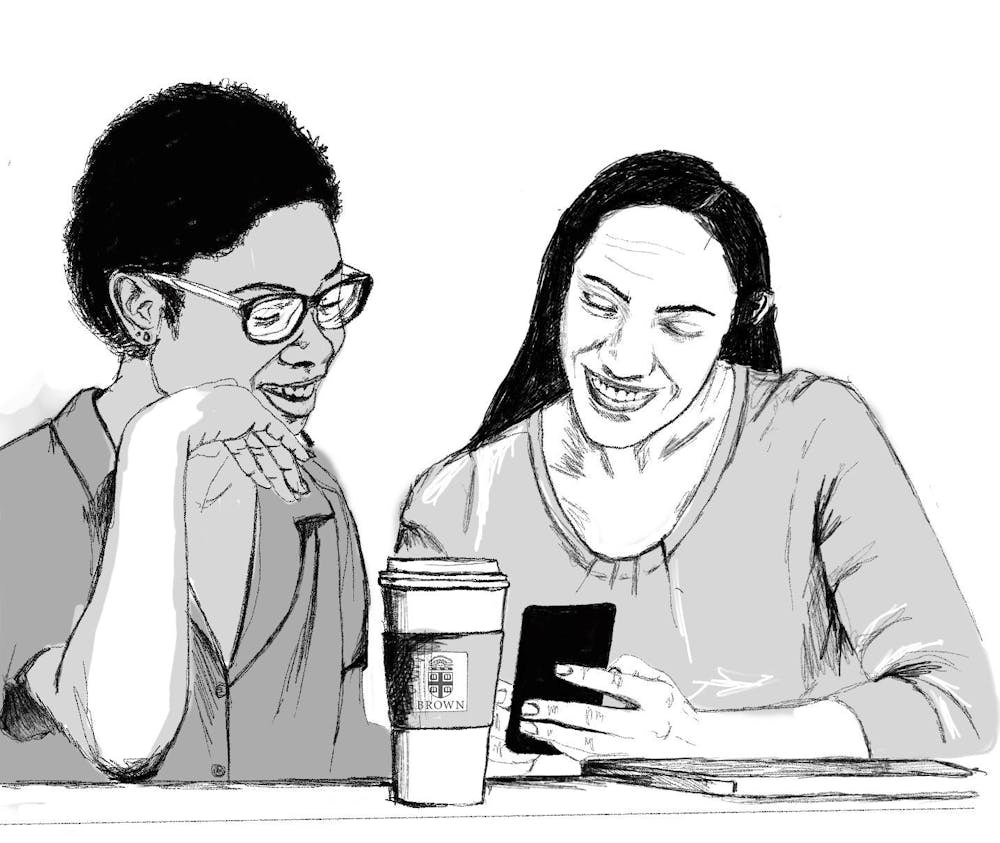The University’s Task Force on the Status of Women Faculty’s April 2023 report found that women faculty feel their service to the Brown community is “undocumented and, as a consequence, underappreciated.” Service responsibilities include informal student mentorship, advising and serving on departmental committees, among others.
The report outlines findings on topics related to women faculty’s working conditions, The Herald previously reported. Its recommendations were generated based on data analysis, as well as conversations with and anonymous feedback from current and former Brown faculty.
The task force cited a 2017 paper by Cassandra Guarino and Victor Borden, which concluded that “on average, women faculty perform more service than male faculty in academia.”
“I think women faculty are more likely to serve as informal mentors, helping students with life challenges that they may face during their college years,” Political Science Professor Katherine Tate wrote in an email to The Herald. But Tate noted that “some male professors have a ton of students seeking their advice” as well.
Guarino and Borden’s paper concluded that “women are more likely to volunteer for service or that they are less likely to refuse requests to perform service,” which may contribute to the difference in service load experienced by female versus male faculty.
Jan Tullis, a professor emerita of geological sciences, said that “there’s been a tendency over time … for women students to feel more comfortable coming to me as an advisor … especially about personal things, but also (about) academic things.”
She also noted that this trend was especially evident when fewer women pursued careers in STEM. Having a female role model in the field does “make a difference” for other women hoping to pursue similar careers, Tullis added.
Alex Lee ’25 has been informally mentored by Visiting Assistant Professor of East Asian Studies Ellie Yunjung Choi as a first-year student in her course EAST 0534: “Patriots, Communists, and Traitors in Modern Korea” and since then as a teaching assistant.
Choi has “become this lifeline to the broader community (of Korean Americans) that I didn’t know I could have,” Lee told The Herald.
“I really appreciate being able to have someone to talk to about not just academic, but personal stuff,” he said. “Professor Choi has helped serve both as a mentor (and) as an outside resource to help me understand just how to be at Brown.”
“That’s a relationship that I haven’t really been able to find anywhere else,” Lee added.
Brenda Rubenstein ’07, an associate professor of chemistry and physics, said it is “hard to enumerate” how much time she spends on informal mentorship, but estimated that she dedicates a few hours every day to advising undergraduates and even more hours to advising graduate students.
Kevin Kim ’25, who has been a student in two of Rubenstein’s courses and now conducts research in her lab, wrote in an email to The Herald that he “was really inspired by her commitment to teaching” in CHEM 0330: “Equilibrium, Rate and Structure.”
“When I joined her lab, I had no idea how to conduct research,” Kim wrote. “I can say that most of my progress and growth as a researcher and student is owed to Professor Rubenstein’s guidance and support.”
Rubenstein frequently assists students seeking fellowship and career advice. Students also approach her about “family issues, health issues, work issues” and experiences as women and minority students, she said.
“I’m okay with” doing more informal advising, Rubenstein said. “But at the same time, that’s something that maybe my male colleagues are not dealing with.”
Rubenstein noted that, in her experience, “some male colleagues actually view the informal mentorship that we’re doing as nursing or babying or mothering.”
But “I actually take it with pride,” she said. “If you consider (my informal mentorship as) mothering the students, that I’m actually helping them, I think that’s a good thing.”
“I’m always happy when students come to me for mentorship and advising. It’s one of the best parts of my job,” said Nell Lake MA’97 PhD’22, lecturer in English. “At the same time, I think the University could value that contribution that I’m making more explicitly.”
Women faculty’s “undocumented service” load may limit the amount of time women faculty can dedicate to research and cause them to remain as associate professors longer than men, the task force report reads.
According to University policy, faculty are asked to complete the Faculty Activity Report annually to document “their teaching, research and service in the prior chronological year.”
When filling out the document, “it’s very hard to say what counts (and) what doesn’t count” as formal advising, Rubenstein said.
According to the task force report, “there is no comprehensive central database at Brown that captures department-level service across the University.”
There is “a lot more emotional labor” required in these positions, Rubenstein said. “You get no credit for any of those kinds of activities” because they are often not tracked by Brown.
Women faculty “help put a human face to the campus,” Tate wrote. “We don’t have a system in place to reward that type of service.”
A press release from Oct. 19, 2023 outlined the University’s plans to address the task force’s findings. A team to implement the task force’s eight recommendations is currently co-chaired by Deputy Provost for Strategic Initiatives Janet Blume and Dean of the Faculty Leah VanWey, The Herald previously reported.
The 10 members of the implementation team “have been meeting regularly since the fall and are nearing the end of our work,” with plans to share recommendations in the spring, Blume wrote in an email to The Herald.
Editor’s Note: The data used in the Task Force on the Status of Women Faculty’s report uses a gender binary of male and female. The Herald understands the limitations of this binary in representing the experiences of gender-diverse faculty.

Kate Rowberry is a senior staff writer at The Herald.





